By
Johnson Grace Maganja
The Uganda Village Project (UVP), a charitable organisation, has been working with the people of Iganga to promote public health and sustainable development in rural communities since 2003. Johnson Grace Maganja had an exclusive interview with UVP Executive Director Leslie Stroud-Romero.
Do you think you are still on track in relation to the goal and objectives you set up to achieve when you started The Uganda Village Project in 2003?
Our goals have shifted over time, but we’re still committed to helping rural communities in Iganga District improve their health. We’re focused on helping villages gain the skills they need to change their health status themselves. Uganda Village Project was formed to be a partnership with students and professionals in the United States coming alongside rural villages and working together to make a difference. We’re still doing that. We work with each village for three years, so it’s not as if we’re coming in for one short project and leaving. We’re there for the long haul, over several years, so that we can genuinely form a partnership and ensure that the resources and skills are in place to leave a community in a healthier place than before we started working there.
What are some of the achievements over the years?
Over the past 12 years we have reached thousands of people from rural eastern Ugandan communities with our public health programs. Uganda Village Project has worked in 28 ‘Healthy Villages’, which is what we call our three-year program where we focus on the most pressing health concerns in a village. Within these villages, we’ve distributed more than 6,000 insecticide treated bed nets, overseen construction of nearly 3,000 tippy tap handwashing stations, tested and counseled more than 7,000 people for HIV, and provided contraceptives to 1,600 women and educated an additional 1,300 about maternal health. We’ve built more than 60 shallow wells to provide villages with safe water, and we have also facilitated repair surgeries for more than 240 women with obstetric fistula.
It’s the stories of individuals whose lives have been changed that I think give the best example of what we’ve achieved. Several years ago, we had a 13-year-old boy named Philip who went to a malaria sensitization put on by the Village Health Team in his village of Kazigo A. Uganda Village Project trains the Village Health Teams to be able to be resource people in their community, and they had organized this event to teach their neighbors about preventing malaria. Philip went with his two younger brothers and his sister, and afterwards, they asked their father to buy them a mosquito net so they could prevent mosquito bites. We talked with Philip later, and he said that now he and his siblings were getting better sleep at night and they’re able to attend school every day, whereas before they were frequently home sick with malaria.
Share with us the challenges you have faced over the years.
Funding is always a problem! We have committed supporters who donate to allow us to implement programs, but we could do so much more if we had more funds. Other challenges include the difficulty of working in rural villages. The roads are frequently bad, and we’ve even had staff members have to stay overnight in a village when an event went late and the weather was too dangerous to travel back to the office.
How have you addressed those challenges?
We reach out to a wide variety of donors to help support our programs. We have individuals who give donations from the US, Australia, and other places around the world. We’ve also had support from foundations like the Fistula Foundation, which has been instrumental in allowing us to reach more people. We’re currently looking into how to partner with larger NGOs so we can continue the important work we’re doing in Iganga.
The biggest way to address the challenges of working in rural areas is to be flexible. We have a team of 42 international and Ugandan interns who help us implement programs every summer, and one of the biggest messages we pass on to them is the need to be flexible. An event you’ve been planning for might not happen because of a burial, or rain, and so you might need to reschedule. Listening to everyone in the village, and finding out what’s best for them, is also important.
How has the government helped you while carrying out your services?
We work really closely with the local government in Iganga, and we couldn’t do our work without them. The District Health Office is a great support. We partner with local health centers and rely on their expertise and skilled nurses for HIV outreaches or family planning events. We also work with the District Water Office on our shallow well program. They lend knowledge and help us budget for well parts so we can both meet goals of getting safe water to the communities in Iganga.
Any future plans for the community you serve?
We’ll continue working in Iganga District for years to come as we work together to improve health. We’re always reviewing our programs to ensure that we are addressing the most important health needs. We’ve looked at other areas of health, such as nutrition, to see if we could add programs in that area to support families.
Visit the Uganda Village Project’s website, blog, facebook and twitter
Leslie Stroud-Romero
Leslie joined Uganda Village Project in 2013. She has a Master’s Degree in Public Administration and a Certificate in Nonprofit Management from the University of Washington. Leslie is originally from the Seattle area but currently living in Uganda. Before moving to Uganda she was employed at PATH, a global health nonprofit. At PATH she worked with individual and institutional fundraising as well as supporting the donor travel program. She is a returned Peace Corps Volunteer from Malawi and Uganda, where she built the capacity of community-based organizations and implemented several economic development and health projects for orphans and people living with HIV/AIDS.

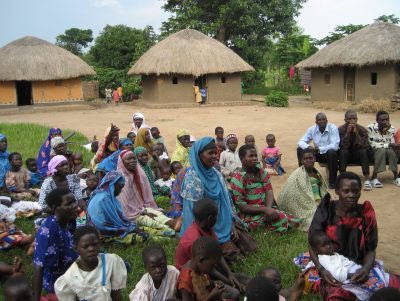

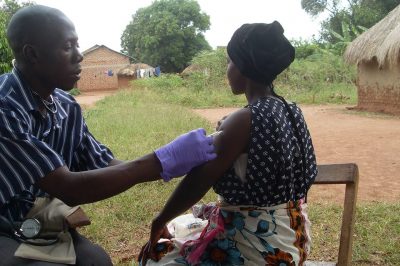
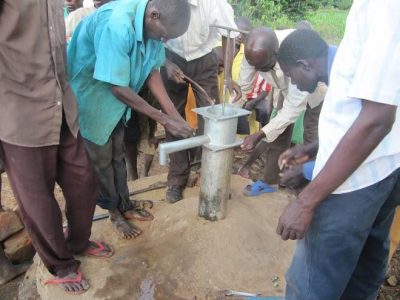
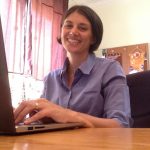
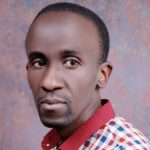
No Comments Yet!
You can be first to comment this post!